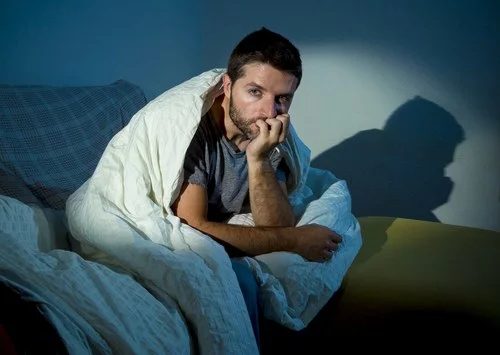We’re used to the idea that anything worth doing takes persistent effort. Nothing good happens on its own. In many ways that’s true of recovery from addiction and mental health issues. Therapy alone takes courage and willingness to be open to new ways of thinking. Recovery requires a commitment to lifestyle changes, including a healthy diet, exercise, and plenty of sleep. Even after you leave treatment, you have to be committed to doing the things that keep you sober, even when you don’t feel like it. You’ve likely heard plenty of talk about how difficult beating addiction or mental illness is. The good news is that recovery isn’t all about grim determination. In fact, learning to relax is an indispensable part of recovery. Here’s why.
Relaxation Reduces Stress
Stress is one of the biggest triggers for relapse. If left unchecked, stress accumulates. You become anxious, you hold tension in your body, and you are constantly preoccupied. Relaxing isn’t something to do on weekends or once a year on vacation. Relaxation should be something you do daily, ideally several times a day, to keep that stress from accumulating. Taking a few moments to relax and breathe throughout the day keeps tension from building up. Not only does relaxation have the benefit of reducing a major trigger, it has the additional benefit of giving you more energy. When you’re more relaxed, you are more efficient and you can deal with problems more easily.
Relaxation Lets You Heal and Recover
We tend to think we get stronger when we exert ourselves, but in fact, the exertion is only the stimulus. We get stronger when we rest. Exertion and rest are both necessary components of improvement. Rest is when your body and mind recover. You can’t built new connections in your brain when you’re under stress. Your brain needs rest to sort things out and make sense of what has happened.
Relaxation Improves Your Sleep
If you can’t relax then you can’t sleep. You’ve no doubt had the experience where you are physically exhausted but your mind won’t slow down and let you sleep. Learning to relax and let go of the day’s problems is necessary for good sleep. When you don’t get enough sleep, you feel more stressed and anxious. Your focus and memory suffer and you make more mistakes. Lack of sleep has been linked to poor self-control and even suicidal thoughts. Getting better sleep by itself is enough reason to practice daily relaxation.
Relaxation Makes You Healthier
Carrying excess stress wears down your body and impairs your nervous system. When your body feels like it’s constantly threatened, it doesn’t waste resources fighting infections. The high level of activity in your sympathetic nervous system makes your stress hormones are constantly high, leading to high blood pressure and greater risk of heart disease. A chronically suppressed immune system also leads to a greater risk of cancer. Feeling anxious and stressed every day leads to digestive disorders, headaches, and fatigue.
Taking time every day to relax activates your parasympathetic nervous system, allowing your body to continue all the processes necessary for long-term health. These include digesting food, healing injuries, fighting infections, and relaxing your heart rate and blood pressure. There is even evidence that people who make time to relax deeply every day, such as regular meditation, even have DNA that is better preserved as they age.
Relaxation Lets You Think More Clearly
You can never do your best thinking when you’re anxious, stressed, and tense. Just as your body shuts down the processes related to digestion, recovery, and fighting infection whenever you feel like you are physically threatened, your mind shuts off it’s faculties of creative problem solving. When you feel threatened is no time for creative thinking. If you stop to think, you’re more likely to get eaten by a bear or something. You brain tries to help you out by narrowing down your options. You can either fight, fly, or freeze. These options might have served our distant ancestors well, but in today’s world, problems are more complex and we need access to more creative solutions. Having a little time every day to take the pressure off allows you to open up a broader array of ideas. If you take a little pressure off of your mind, the solution will often present itself.
Recovery is a Marathon, Not a Sprint
Perhaps most importantly, you don’t finish recovery in a week, a month, or a year. You can’t take a break after recovery is finished. It’s something you have to keep working on indefinitely. Like any other important undertaking, it takes a long-term, daily effort. That means you have to work, then rest. It’s not like meeting an important deadline. You just have to keep going. Making relaxation a regular part of your day gives you the ability to recuperate and get back to work the next day. Building daily relaxation into your recovery reinforces the fact that recovery is a process and not a goal.
If you or someone you love is struggling with addiction or mental illness, The Dawn Medical Rehab and Wellness center can help. We are one of Thailand’s most respected addiction treatment and wellness centers. We use established, research-backed treatment modalities such as CBT and MBCT, as well as cutting-edge treatment modalities to provide personalized care to treat addiction, depression, anxiety, bipolar disorder, personality disorders, PTSD, and executive burnout. See our contact page to reach us by phone or email.
Related Posts
 How to Make Relaxation a Part of Your Recovery Routine
There are many elements to a successful recovery. You have to address any traumas or mental health issues, forge strong social connections, make healthy lifestyle changes, and generally make a...
How to Make Relaxation a Part of Your Recovery Routine
There are many elements to a successful recovery. You have to address any traumas or mental health issues, forge strong social connections, make healthy lifestyle changes, and generally make a...
 How Is Insomnia Treated?
If there’s one essential pillar of mental and physical health, it’s getting enough quality sleep. Although sleep seems like doing nothing, your body is doing a lot. Sleep is when...
How Is Insomnia Treated?
If there’s one essential pillar of mental and physical health, it’s getting enough quality sleep. Although sleep seems like doing nothing, your body is doing a lot. Sleep is when...
 When Does Anxiety Become an Anxiety Disorder?
It’s normal to feel anxious occasionally. We’re supposed to feel anxious when faced with a legitimate threat or when we’re trying to get something we really want, like a date...
When Does Anxiety Become an Anxiety Disorder?
It’s normal to feel anxious occasionally. We’re supposed to feel anxious when faced with a legitimate threat or when we’re trying to get something we really want, like a date...
 7 Ways a High-stress Lifestyle Can Affect Your Health
Between work demands, deadlines, personal goals, and family obligations, it’s easy to go the whole day without a break. This is especially true of motivated people who want to achieve...
7 Ways a High-stress Lifestyle Can Affect Your Health
Between work demands, deadlines, personal goals, and family obligations, it’s easy to go the whole day without a break. This is especially true of motivated people who want to achieve...





